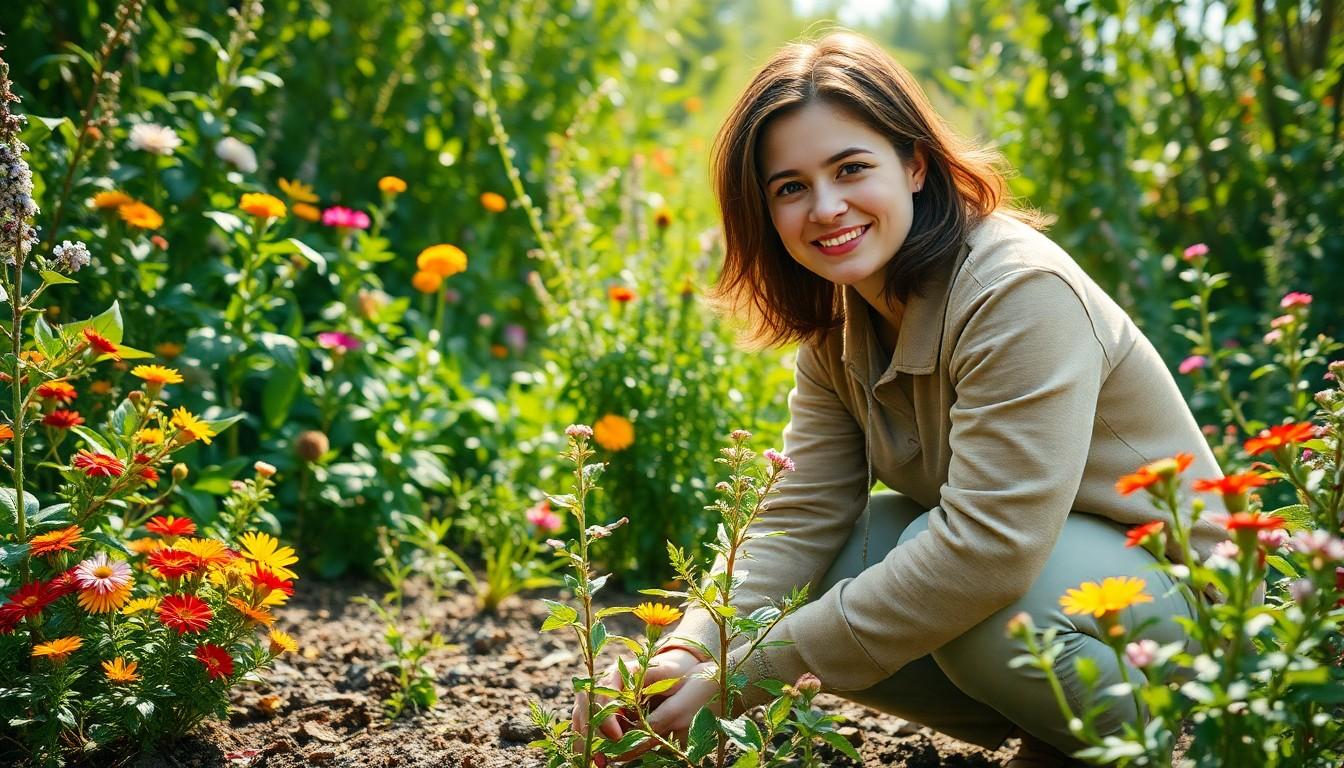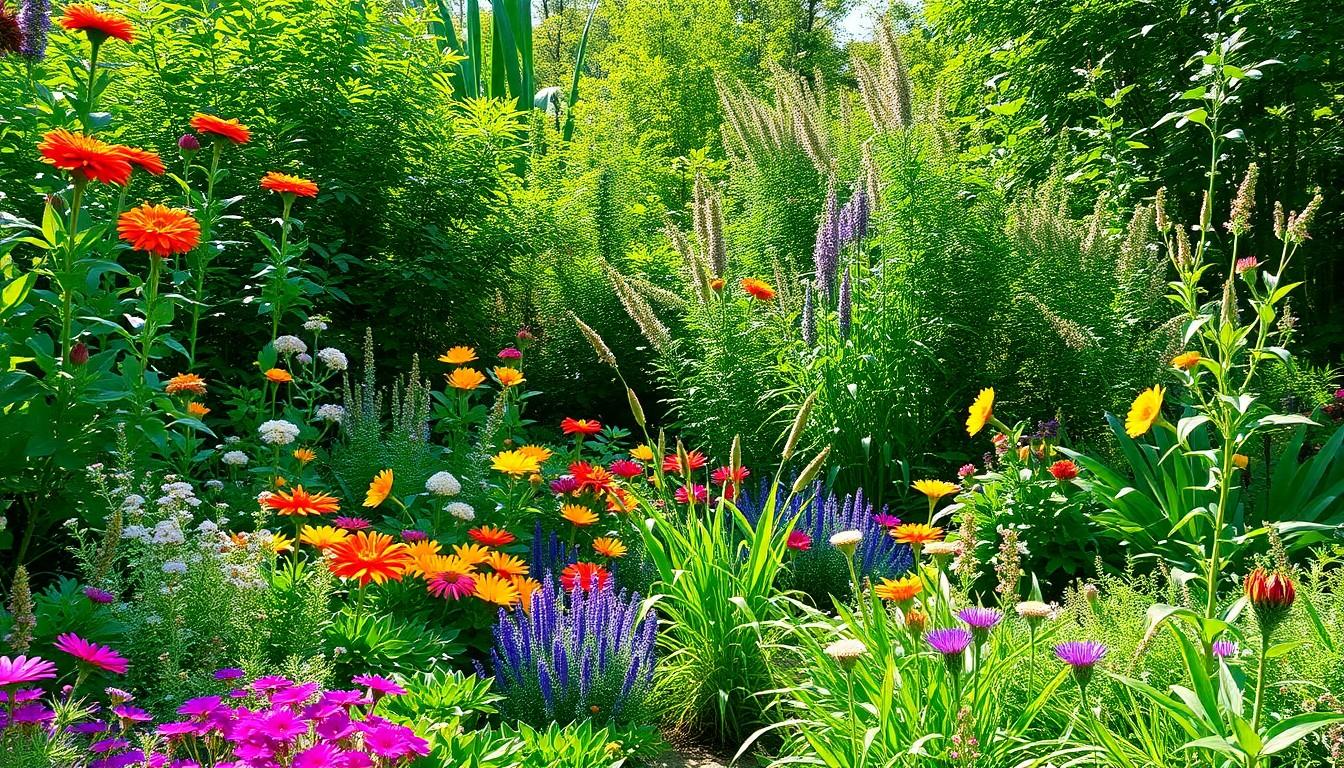Phone:
(701)814-6992
Physical address:
6296 Donnelly Plaza
Ratkeville, Bahamas.

In a world where stress is as common as a morning coffee run, wild garden wellness offers a refreshing escape. Imagine stepping into a vibrant sanctuary where nature’s chaos meets tranquility. It’s not just about pretty flowers and buzzing bees; it’s a holistic approach to well-being that rejuvenates the mind, body, and spirit.
Wild garden wellness represents a balanced approach to cultivating health through nature. It encourages individuals to embrace greenery as a pathway to enhance overall well-being.
Wild garden wellness centers around creating spaces that prioritize biodiversity. This concept promotes the use of native plants, wildlife habitats, and organic practices. Engaging with nature in this manner creates an immersive experience that nurtures mental health and fosters personal growth. Individuals find connection to the environment, fostering resilience and joy through tactile interactions with plants. It transcends traditional gardening, emphasizing mindfulness and holistic health.
Numerous benefits stem from wild garden wellness practices. Mental clarity and emotional balance arise from spending time surrounded by diverse flora. Studies indicate that exposure to green spaces can reduce anxiety and various stress levels. Physical health improves with increased activity from gardening tasks, promoting cardiovascular health and muscular strength. Social interactions may also flourish within these gardens, encouraging connections between community members. Effective healing occurs as individuals forge deeper relationships with nature, cultivating spirituality alongside physical and mental wellness.

Wild garden wellness comprises essential elements that work together to create a thriving environment for physical and mental health. These components include natural landscaping techniques and the use of native plants to boost biodiversity.
Natural landscaping techniques focus on creating harmonious outdoor spaces. Techniques like permaculture and xeriscaping promote sustainable gardening practices. Utilizing organic materials encourages soil health, while water-efficient designs lower maintenance needs. Incorporating features like rain gardens and swales helps manage runoff and supports local wildlife. This approach enhances the aesthetic appeal and fosters a self-sustaining ecosystem. Engaging in these practices allows for a deeper connection with the environment, transforming gardens into living entities.
Native plants play a crucial role in promoting biodiversity within wild gardens. These plants adapt well to local climates, requiring less water, fertilizer, and pesticides. They also attract beneficial insects and wildlife, supporting pollinator populations and promoting ecosystem balance. Choosing a variety of native species increases resilience against pests and diseases. Integrating diverse plant life enriches soil quality and stimulates healthy interactions among organisms. By prioritizing native flora, gardeners cultivate vibrant spaces that nurture both health and the environment, setting the foundation for holistic well-being.
Wild garden wellness thrives through intentional practices that promote both personal health and environmental vitality. These practices cultivate deeper connections to nature and enrich overall well-being.
Sustainable gardening methods transform outdoor spaces into thriving ecosystems. Utilizing permaculture principles encourages biodiversity and optimizes resource use. Organic practices reduce harmful chemicals, enhancing soil health and plant resilience. Water conservation techniques, such as xeriscaping, create beautiful landscapes while minimizing waste. Mulching retains moisture and suppresses weeds, which benefits plant growth. Incorporating companion planting maximizes yields and controls pests naturally. Prioritizing these sustainable gardening methods nurtures both the garden and its caretaker by fostering a balanced relationship with nature.
Encouraging wildlife in a garden enriches the ecosystem and supports biodiversity. Planting native species attracts local animals, providing essential food and habitat. Installing bird feeders and baths invites avian visitors, enhancing the garden’s lively atmosphere. Incorporating insect hotels promotes beneficial pollinators, crucial for plant health. Allowing areas of the garden to grow wild creates shelter for small mammals and beneficial insects. Providing water sources, like ponds or shallow dishes, sustains wildlife, encouraging its presence. Prioritizing these methods transforms a garden into a vibrant sanctuary that supports local wildlife while enhancing one’s wellness journey.
Wild garden wellness profoundly affects mental health by nurturing a connection to the natural world. Engaging with greenery enhances mood and fosters tranquility.
Experiencing the sights and sounds of nature creates a calming environment. Being surrounded by diverse plant life reduces feelings of isolation and promotes a sense of belonging. People who spend time in these vibrant spaces often report increased creativity and focus. Studies show that nature exposure leads to lower levels of the stress hormone cortisol, contributing to overall emotional well-being. This connection fosters mindfulness, encouraging individuals to be present in their surroundings. Regular experiences in natural environments facilitate deeper relationships with both nature and oneself.
Gardening activities offer an effective outlet for stress relief. Tasks such as planting, weeding, and watering act as meditation, promoting relaxation. Engaging in these physical activities boosts endorphin levels, which enhance feelings of happiness. Moreover, regular interaction with gardens can interrupt daily stressors, providing an escape from overwhelming situations. Observing the growth of plants instills a sense of accomplishment and patience, further contributing to mental stability. Incorporating these practices into a routine establishes a soothing ritual that combats anxiety and cultivates overall well-being.
Wild garden wellness offers a transformative approach to stress relief and personal growth. By creating spaces that celebrate biodiversity and sustainability, individuals can foster a deeper connection with nature. This connection not only enhances mental clarity and emotional balance but also promotes physical health through active engagement.
As people embrace the principles of wild garden wellness, they cultivate resilience and joy in their lives. These vibrant sanctuaries become sources of inspiration and healing, allowing for meaningful interactions with both the environment and the community. Ultimately, prioritizing wild garden wellness can lead to a richer, more fulfilling life, where nature’s beauty and tranquility play a central role in overall well-being.